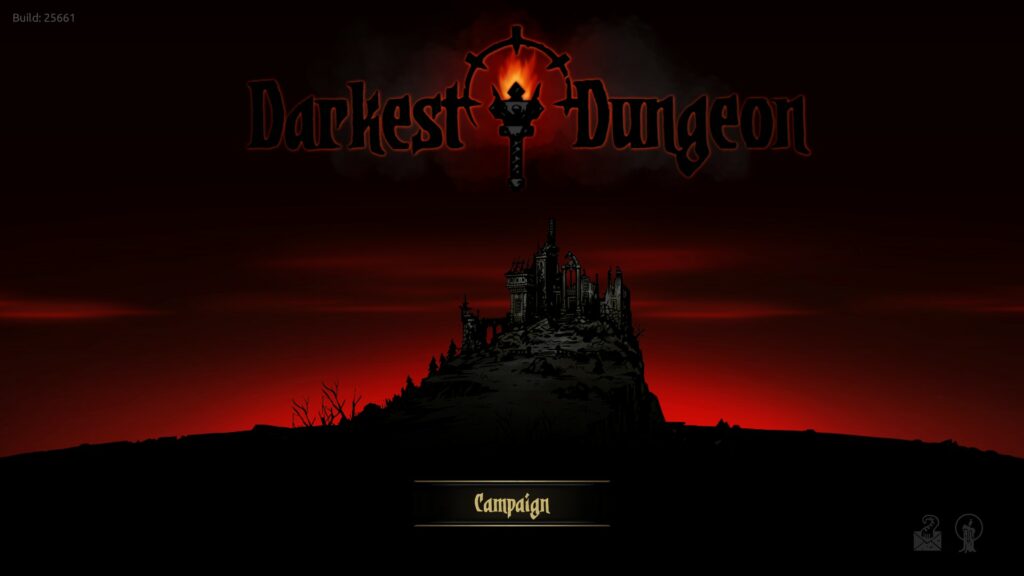
So, sorry to disappoint, but I don’t have any fancy screenshots of this one. Mostly because while playing Darkest Dungeon, I was too busy navigating nose-deep through a viscid Lovecraftian mire and in danger of being sucked down into a crippling depression to think too much about taking tourist-y snapshots of my destination. And I loved it.
Games like DD are becoming more and more popular lately, and it’s a beautiful thing. Slay the Spire is the closest example, but there are others. Essentially, they are games that come off more as board games and less as true “video games.” The games don’t take place in real time, the AI is predictable and the effects of the game are mathematical. However, due to the insane number of “pieces” and abundant random number generation required, these games are best-suited for an electronic medium where the the tedium is removed and the player can simply enjoy the game. This allows for an extremely strategy-oriented genre of gaming to emerge, something that while is not inherently unique, is still being pushed beyond limits that we have seen previously.
To put it quickly, Darkest Dungeon as a game is twofold. The first part is easily recognizable–the Dungeon Crawl aspect. Crawling is not a new concept in the slightest, but DD provides a unique combat system where party and enemy positioning is extremely important. No longer can you simply mathematically repeat a rotation of skills that lead to the greatest amount of DPS–you must carefully consider where everyone is standing each turn in order to formulate the best strategy. The second part of the game (and arguably the most important) is the management portion. Your heroes… are not your heroes. They are individuals with their own desires, fears and joys. You can give them orders… but you had better hope they listen. You can tell them what is rational, but they may perform the irrational.
Through the game’s massive number of terrible things that can happen to your heroes, they begin to develop personality. While choosing heroes to go out on a mission, you may consider that one of them is a powerful crusader, perfect for fighting the undead. However, he’s also kleptomaniac, prone to stealing treasure–and you need the money right now, so it might not be worth the risk. While trying to manage your Vestal’s (cleric’s) PTSD, you may have become familiar with placing her in the church to pray. Or at least you were, until you realize that she saw something so horrible in the church that she refuses to go back, instead now, only seeking refuge in an endless flagon of mead at the tavern. The next week when you expect her to be sobered and destressed–it turns out she’s become an alcoholic and refuses to leave. Or maybe you’re in the middle of a fight–your weaker backline fighters trembling in fear, barely holding onto their life, held together by a withered old Man-At-Arms. He’s been holding the line the entire dungeon, making sure to keep everyone safe, but finally, the stress is too much and he snaps. He starts smashing party members with his mace when they don’t do what he wants, pushing them in front of himself to take a monster’s hit.
The list goes on and on. The entire game is a spinning endless cyclone of trying desperately to hold these people together, while you force them to march onward into certain death. Without this, the dungeons would become mundane and the game stale. You would develop a party of heroes that are most statistically likely to crush all before them and the gameplay would become routine. Classes would begin to fall into tiers, with some classes being must-haves and other classes being lost in the dust. But you can’t do that in DD. The game won’t let you. Uncontrollable events are constantly forcing you to compromise. The whims of your heroes will pull out the foundational trump suit supporting your house of cards, causing them all to tumble down. The permanent death of a cornerstone champion forces you to completely rethink your party composition. The game is great.
Finishing an Ascension 20 run Slay the Spire was one of the hardest challenges I’ve accomplished in a game, and when finished I just felt relieved; relived to know that I never had to do that again. When I finished DD however… I felt happy. I felt excited to look back on the journey behind me. I felt proud of everything that I’d learned along the way. Surprisingly, in spite of how stress-filled an intense it was, I felt sad that it had ended. I wanted to keep going.
It’s those feelings that make me realize, that even though the journey was incredibly long, sometimes frustrating, and difficult to find a footing in, DD is a powerful Tier 1 game. It’s a bit like Dark Souls really. The first time you play it, it’s horrible, brutal, you die constantly and you have no clue what you’re doing. Then you finish and look back and think “…that actually wasn’t so bad. What if I did it again?”